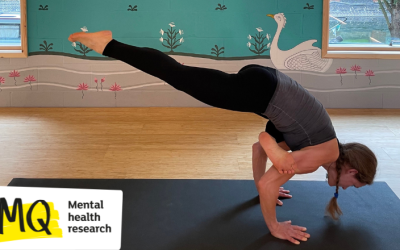By Guest Blogger Eli Patterson
Eli Patterson is a psychologist specialising in working with children, adolescents, and young adults with a range of socio-emotional problems. Eli's therapeutic approach is to provide support and counselling to help clients effectively address personal life challenges. Eli wanted to write for MQ, as not everybody can access therapy, so she wanted to share knowledge about how people can better look after their mental health.
For World Happiness Day, Eli Patterson talks about the mental health benefits of plants.
Do you find joy and satisfaction from looking at a bouquet of flowers or the surrounding greenery?
If you have ever experienced that kind of feeling, you have experienced first-hand the positive impacts plants have on wellbeing. There’s a wealth of research showing that your interaction with plants, whether outdoor or indoor is good for your mental health. Here are four ways in which plants affect your mental health:
1. Enhances your mood
People are happier in surroundings that have a lot of plants. According to a study conducted in hospitals around San Francisco Bay Area, 79% of the patients who took part said they felt calm, 19% claimed to have felt a sense of optimism, and 25% became stronger from spending time around plants. Another study featuring women in 2005 revealed that they developed positive emotions three days after they were given flowers. A group of people aged 55 and over also said that their moods were improved when they received flowers. So, if you know someone struggling with the pandemic, reaching out and sending a plant or flowers could be a great way to help boost their mood, or you can treat yourself to some to let your positive feelings blossom.
The more plants the merrier when it comes to house plants or growing in your garden. You might even curate your own indoor garden simply by making use of grow lights that mimic sunlight and brighten moods. Don’t be afraid to get your hands dirty, as the bacterium is found in soil and may stimulate serotonin production, which makes you relaxed and happier.
2. Boosts memory
You may find this hard to believe, but plants can even help your memory by helping you concentrate.
Being near plants also helps with your memory as it facilitates concentration. How is this possible? When you care for plants, the process is repetitive and offers you a different kind of experience each time. Such activity helps your brain retain more and enables you to maintain focus on the task you have at hand. The Journal of Environmental Psychology has published many articles that show indoor plants are can play their part in boosting memory.
A study published in the International Journal of Environment & Public Health found that visual stimulation of green foliage plants among children resulted in improved feelings, attention, and comfort. Whether you have access to a local park or can visit the countryside, make time to visit green spaces.
3. Could help reduce symptoms of depression
However, interacting with nature could play its part in helping with common mental health problems such as depression. A study conducted in Korea among patients living with depression compared the effects of cognitive-behavioural therapy performed in an arboretum and a hospital setting showed that the group on the outdoors had reduced symptoms of depression. The same group also had approximately 20-30% high remission rates compared to a group on depression medication. The results of this study promoted doctors to prescribe nature for patients with depressive symptoms.
4. Enhances attention and reaction time
Researchers who wanted to better understand the effect of nature on children living with attention deficit hyperactivity disorder (ADHD) reported that activities carried out in green settings reduce the symptoms of ADHD as opposed to other settings. Numerous children could benefit greatly from spending time outdoors where they have access to nature.
You can reduce mental fatigue and enhance attention from working in a setting with plants, according to other studies. If you are struggling to focus while working from home, perhaps treating yourself to a new plant could help you stay on track - at the very least your office space or kitchen table will look more inviting.
Plants have a lot to offer beyond looking great in your living room. Make sure that you spend a lot of time outdoors to enjoy the benefits. If you don’t have access to green space, you can always bring the greenery indoors with some cheery houseplants.
NB Some of these studies may not have been peer-reviewed, given the niche subject matter.



